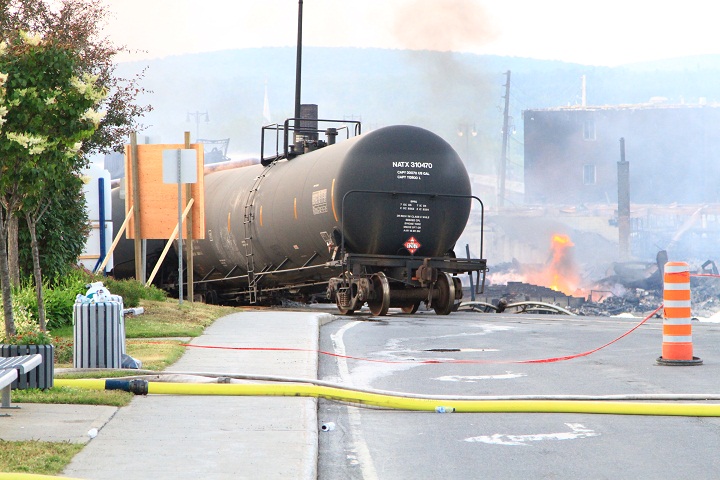TORONTO – Fifteen people are confirmed dead and close to 40 more people reported missing in a Quebec train derailment in the early morning hours of July 6.

Now the rail company Montreal, Maine & Atlantic involved in the crash and the municipal fire department have begun pointing fingers at one another as the Transportation Safety Board begins investigating the disaster.
Edward Burkhardt, the president and CEO of MMA’s parent company, Rail World, Inc., has suggested the fire crew did not do enough in responding to the crash, even saying that actions taken by the fire department could have disabled the brake lines.
Representatives for the fire department claim to have followed procedures outlined by the rail company.
Burkhardt is set to visit the devastated area later in the week.
In San Francisco, Asiana is facing a public relations nightmare after one of its jets crashed during a landing, killing two people and sending 180 people to hospital, also on July 6.
Initial statements from Asiana said that pilot Lee Gang-guk, who had nearly 10,000 hours flying, only had 43 in the 777 that crashed, a plane the pilot was still getting used to flying.

Get breaking National news
Asiana President Yoon Young-doo announced Tuesday he was leaving for San Francisco to meet with victims’ families and offer an apology, almost three days after the crash.
In both cases, the companies involved ignored the first rule of crisis communications which is to get ahead of the story according to Robin Sears, a communications expert with Earnscliffe Strategy Group. (Full disclosure, Sears has worked with Shaw Communications – an arm of Global News’ parent company, Shaw – in the past.)
“Get the good news out fast and the bad news out faster,” said Sears. “People who miss out on the first news cycle are already behind. I would not give either company much credit. It was more than 24 hours before we got a definitive response from either company.”
Although Asiana’s president said he would offer an apology, Sears said the announcement comes as too little and too late.
“It’s very bizarre to me how aloof people are to the simplest solution which is saying sorry,” said Sears.
Looking at the history of how companies handle the PR fallout from disasters the 2008 listeriosis outbreak and subsequent Maple Leaf foods recall sets the gold-standard according to Jane Shapiro, a crisis communications expert with Hill + Knowlton strategies.
In 2008 a widespread a bacterial outbreak of listeriosis was linked to cold cuts sold by Maple Leaf Foods that killed 22 people and sent another 57 people to hospital.
“Ultimately companies are remembered for the way they managed the situation than the situation itself,” said Shapiro. “(Maple Leaf Foods) was a textbook case of how to handle a crisis.”
On the same day the government linked the breakout to Maple Leaf Foods, company president Michael McCain held a news conference, posted a video to YouTube apologizing for the outbreak, and circulated a company statement.
“They were quick to accept responsibility, quick to apologize and empathize with victims, and take action,” said Shapiro. ” It’s enormously important for CEOs to talk about what they know rather than what they hope they know.”
Shapiro uses the example set by the British Petroleum oil spill in the gulf of Mexico and former CEO Tony Hayward speculation that the effects of the spill would be quite small when they were in fact devastating.
Sears said that companies should learn from the mistakes of their predecessors.
-With files from The Canadian Press







Comments